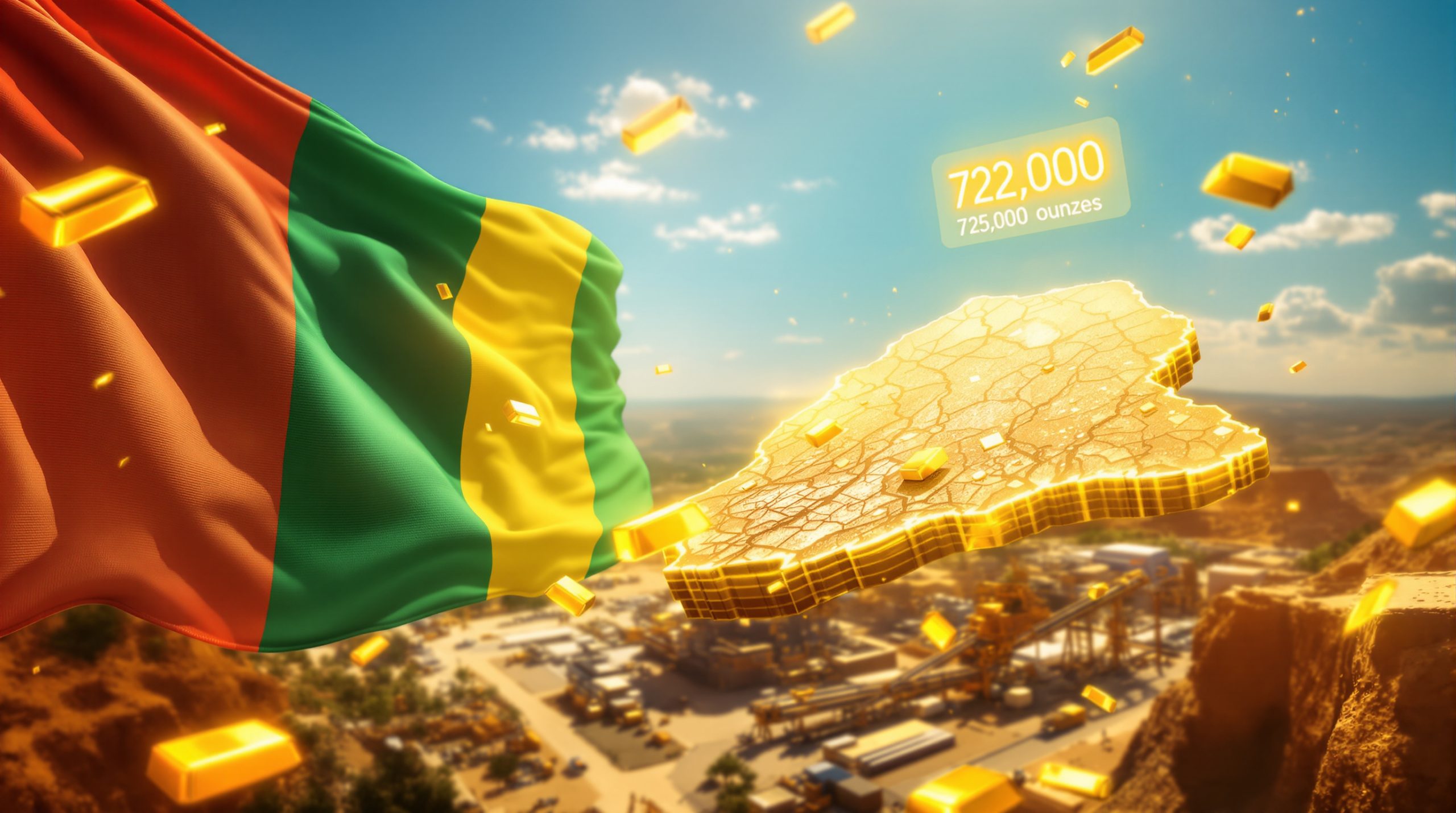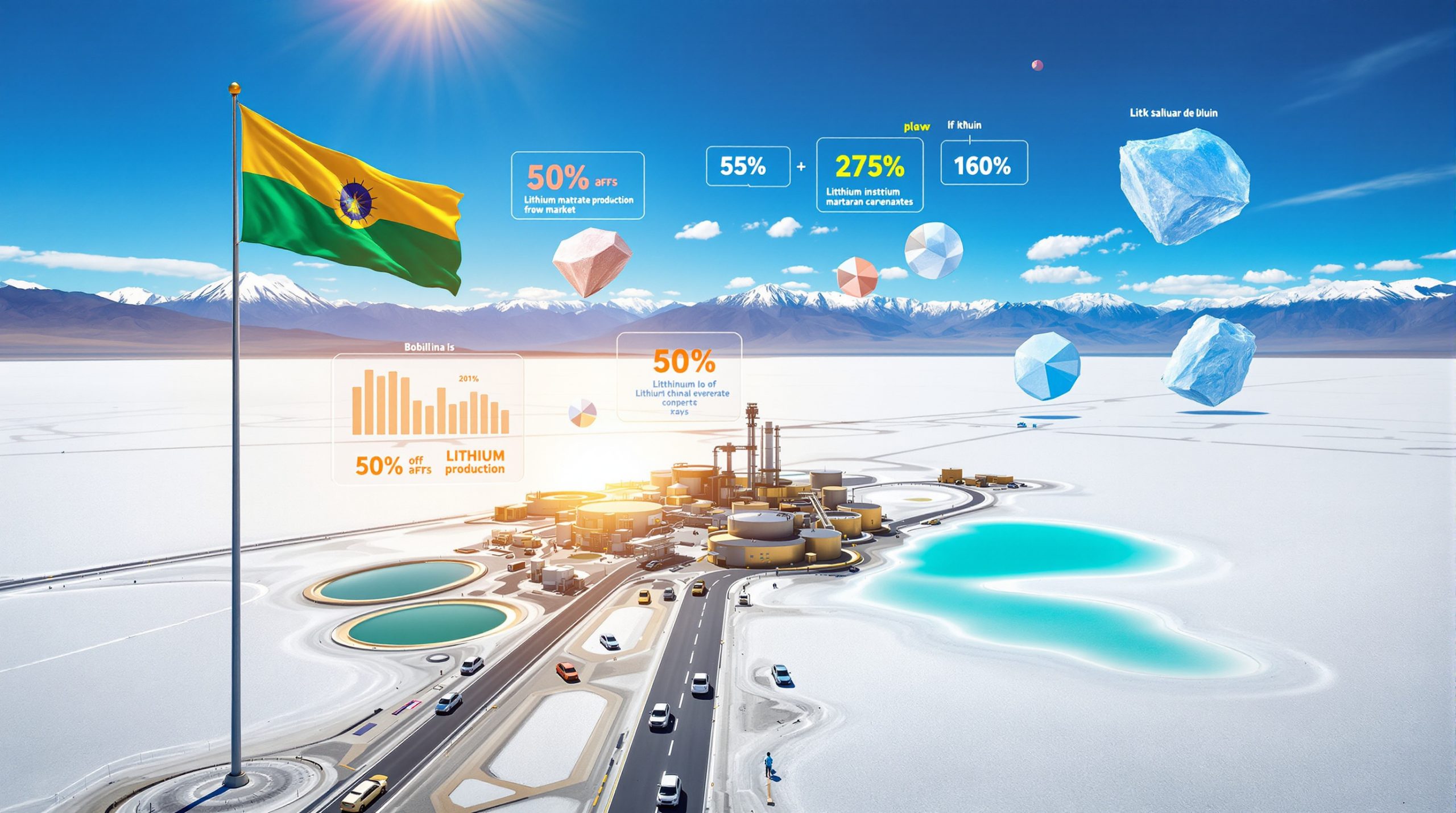What is the Rwanda-US Minerals Deal?
Rwanda recently confirmed ongoing talks with the United States over a potential minerals access agreement, marking a significant development in US-Africa resource diplomacy. According to a Rwanda government spokesperson, "This is part of the discussions that we are having with the US," though details remain limited as negotiations are still in preliminary stages.
The Rwanda-US minerals deal represents an emerging pattern in American mineral diplomacy across Africa, following similar strategic initiatives aimed at securing critical mineral shortages. This move comes against the backdrop of intensifying global competition for resources essential to technological innovation and energy transition.
Current Status of Negotiations
The Rwandan government officially acknowledged these discussions in April 2025, but has been notably circumspect about providing specific details. The deliberate pace of these negotiations reflects the strategic importance both nations place on resource access agreements, particularly given the complex regional dynamics at play.
"While discussions are ongoing, the framework being developed is expected to balance resource access with broader security and development goals," noted a diplomatic source familiar with the negotiations. Both parties are proceeding cautiously, recognizing the potential regional implications.
Similar Precedents in the Region
The Rwanda talks parallel ongoing US-Congo "minerals-for-security" negotiations, which involve American security assistance in exchange for preferential access to Congolese mineral resources. This approach has become a cornerstone of US strategy in mineral-rich African nations.
These bilateral agreements reflect a shift in US resource diplomacy from traditional market-based approaches to more formalized state-level partnerships. The US has increasingly recognized that mineral security cannot be left solely to market forces, particularly when competing with state-backed enterprises from countries like China.
Why is the US Pursuing Minerals Deals in Africa?
The American pursuit of minerals agreements in Africa stems from a strategic imperative to secure supply chains essential for technological dominance and energy transition. With China controlling over 50% of global copper processing capacity and dominant positions in other critical minerals, US officials have identified this dependency as a national security vulnerability.
Critical Minerals Security Strategy
The Trump administration has outlined an ambitious critical minerals strategy that includes considering a sovereign wealth fund dedicated to investing in US mining operations. Simultaneously, the Interior Department is working to expedite development of domestic resources while forming Africa critical minerals partnerships in mineral-rich regions abroad.
"A lack of security in critical mineral supply chains threatens the US industrial base, technological innovation, and energy transition goals," noted a recent government assessment. This concern has driven a more assertive approach to securing mineral access through formal diplomatic channels.
The US strategy combines domestic resource development with strategic international partnerships to create redundant supply chains that can withstand geopolitical disruptions. Rwanda, with its significant reserves of tantalum, tungsten, and other technology-critical minerals, represents an important piece in this diversification effort.
Global Competition for Resources
China's dominance in mineral processing has created a strategic imperative for competing nations. With control over more than half of global copper processing capacity and similar advantages in rare earths, lithium, and cobalt refining, China has leveraged its position to influence global technology markets through critical mineral export restrictions.
This market concentration has been especially apparent in the electric vehicle sector, where cobalt price fluctuations have doubled the value of the EV battery market in recent years. As demand for these materials accelerates with the energy transition, competition for secure supply chains has intensified.
US policymakers have emphasized developing a "credible strategy" to secure critical supply chains outside Chinese influence. The Rwanda-US minerals deal represents one component of this broader effort to establish alternative resource corridors essential for industrial competitiveness.
What Regional Tensions Impact the Deal?
The Rwanda-US minerals agreement exists within a complex web of regional conflicts that directly affect resource extraction and transport. These tensions create both challenges and strategic opportunities for the parties involved.
Congo-Rwanda Conflict Context
The Democratic Republic of Congo has consistently accused Rwanda of supporting M23 rebels operating in mineral-rich eastern Congo. These rebels have seized control of significant territories containing valuable mineral deposits, disrupting established mining operations and creating alternative supply channels.
"The conflict in eastern Congo has transformed mineral extraction patterns across the region," explained a regional security analyst. "Control of mining areas has become a key objective for armed groups, with significant implications for global supply chains."
This ongoing violence has disrupted conventional mineral extraction in eastern Congo, creating supply shortages that affect global markets. Any minerals agreement with Rwanda must navigate these complex regional dynamics, particularly given allegations about cross-border mineral flows.
Geopolitical Considerations
The simultaneous advancement of US minerals discussions with both Rwanda and Congo reflects a nuanced approach to regional complexity. By engaging both nations, the US potentially gains leverage in promoting regional stability while securing mineral access regardless of which extraction routes prove most reliable.
Regional stability concerns inevitably influence implementation timelines and security provisions in any minerals agreement. The US-Congo minerals-for-security negotiations explicitly tie resource access to stabilization efforts, creating a template that may influence the Rwanda agreement's security components.
The minerals diplomacy underway has potential to reshape regional power dynamics by introducing a significant external stakeholder with security interests tied directly to resource flows. This could either exacerbate tensions or create new incentives for cooperation, depending on geopolitical investor strategies.
How Does This Fit into Global Minerals Strategy?
The Rwanda-US minerals deal represents one component of a comprehensive American strategy to reduce dependency on potentially hostile or unstable supply chains. This approach combines domestic resource development with strategic international partnerships.
US Critical Minerals Initiatives
The Trump administration has actively pursued minerals security through multiple channels. The Interior Secretary has directed agencies to expedite resource development approvals domestically, while exploring innovative financing mechanisms like a sovereign wealth fund dedicated to mining investments.
These domestic efforts are complemented by an international strategy that identifies key mineral-producing regions and develops bilateral agreements to secure preferential access. The focus extends beyond mere extraction to include processing capacity and technology transfer components.
"We're developing a minerals strategy that addresses the entire supply chain from extraction to processing to manufacturing," explained a senior administration official. This comprehensive approach aims to reduce vulnerabilities at each stage of the materials lifecycle.
Comparison with Other Global Minerals Partnerships
The Rwanda agreement follows similar US minerals diplomacy initiatives in other regions, including Australia, Canada, and select South American nations. These partnerships typically include technology sharing, infrastructure investment, and preferential purchasing agreements alongside resource access provisions.
This pattern reflects a growing trend of resource nationalism and strategic partnerships replacing purely market-driven resource allocation. Nations increasingly view critical minerals as strategic assets requiring government intervention to secure reliable access.
The bilateral agreement model demonstrates a shift away from multilateral resource governance toward direct state-to-state arrangements that provide greater certainty for both producers and consumers. This approach allows tailoring of terms to specific national security and economic development objectives.
What Minerals Are Likely Involved?
While specific mineral targets remain undisclosed in the Rwanda-US discussions, analysis of Rwanda's resource profile and US strategic needs suggests likely priorities.
Rwanda's Strategic Mineral Resources
Rwanda possesses significant reserves of tantalum, tin, tungsten, and niobium – all classified as critical minerals by the US Geological Survey. The country produced approximately 1,500 tons of tantalum in 2024, representing about 8% of global supply for this essential capacitor component.
"Rwanda's tantalum reserves are particularly significant given their high grade and relatively stable production environment," noted a mining sector analyst. "The country has developed considerable expertise in responsible extraction methods for technology minerals."
Beyond these traditional exports, Rwanda has identified promising deposits of rare earth elements and lithium that remain largely undeveloped due to technical and financial constraints. US investment could potentially accelerate development of these reserves.
Critical Minerals for US Strategic Interests
The cobalt market has experienced dramatic price spikes in recent years, doubling the value of the electric vehicle battery market. With EV demand projected to grow 400% by 2030, securing stable cobalt supplies has become a strategic priority for major economies.
Copper processing capacity has become increasingly concentrated among a handful of global players, creating vulnerability to supply disruptions. The US strategy specifically targets minerals essential for technological innovation and energy transition, contributing to what some analysts term a new commodity super cycle.
"The minerals prioritized in these agreements reflect both immediate supply concerns and longer-term technological forecasting," explained an industry consultant. "Securing access to tantalum and tungsten addresses current manufacturing needs, while rare earth elements and lithium reserves position for future energy and defense applications."
FAQ About the Rwanda-US Minerals Deal
What is known about the timeline for finalizing the deal?
No specific timeline has been publicly announced. The Rwanda government spokesperson confirmed talks are ongoing but declined to provide further details. Based on similar agreements, negotiations typically progress through exploratory, technical, and final implementation phases, potentially spanning 12-18 months before formal signing.
How does this deal relate to the US-Congo minerals agreement?
Both agreements form part of the US strategy to secure critical mineral supply chains. The Congo deal focuses explicitly on minerals-for-security, exchanging preferential resource access for security assistance. While details of the Rwanda arrangement remain undisclosed, it likely emphasizes different aspects of the mineral value chain, potentially including processing capacity and technical cooperation.
What impact might regional conflicts have on implementation?
The M23 rebel activity in eastern Congo and tensions between Rwanda and Congo could complicate implementation, especially regarding mineral transport and regional stability. Cross-border mineral flows may face additional scrutiny given allegations about conflict resources. Any agreement will likely include provisions addressing traceability and responsible sourcing to mitigate these concerns.
How does this fit into broader US critical minerals policy?
The deal aligns with the administration's focus on securing critical mineral supply chains through both domestic development and strategic international partnerships. It represents one component of a comprehensive approach that includes expedited permitting for domestic mines, potential sovereign wealth fund investments, and bilateral agreements with reliable partners in resource-rich regions.
Want to Profit from the Next Major Mineral Discovery?
Discover how significant mineral finds like those mentioned in the Rwanda-US deal can generate substantial returns by exploring Discovery Alert's dedicated discoveries page, where our proprietary Discovery IQ model instantly alerts investors to ASX mineral discoveries and transforms complex data into actionable investment insights.




